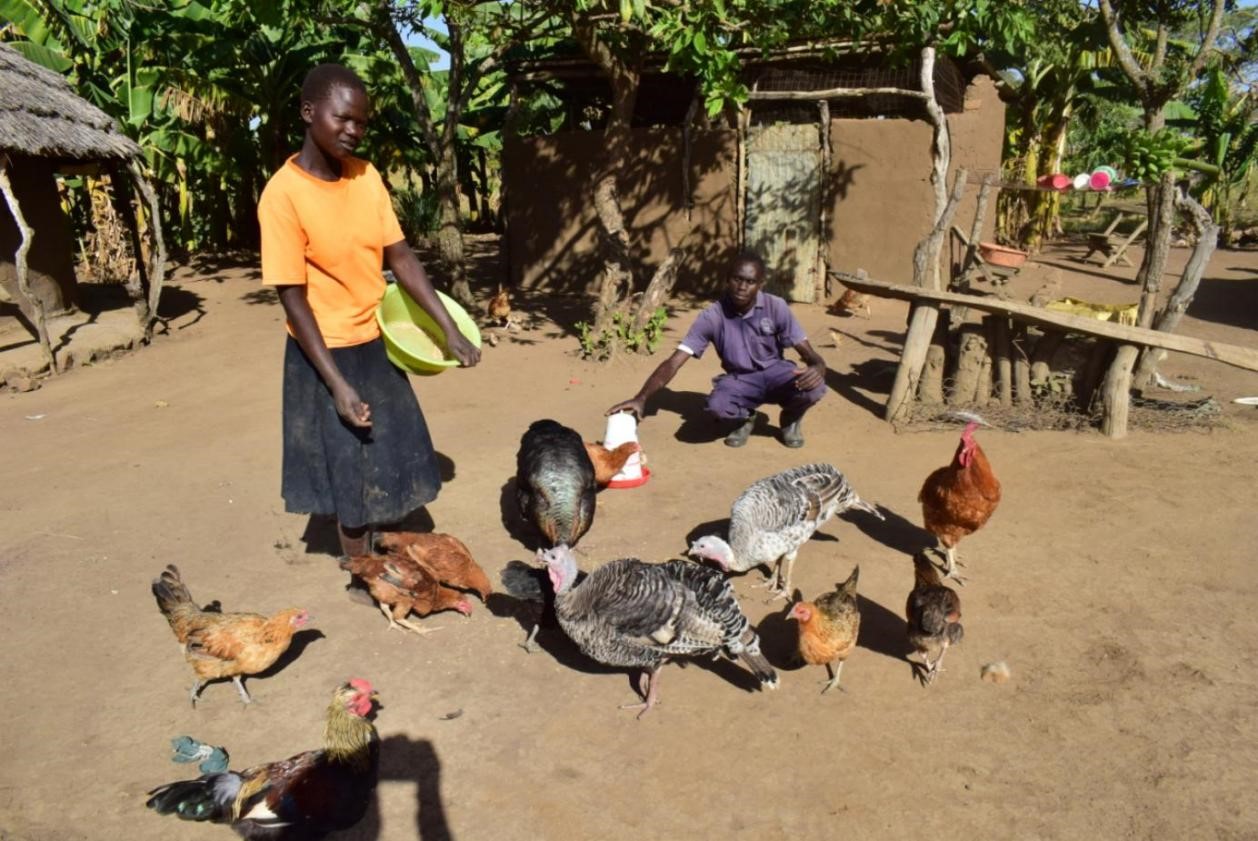Our mission is to promote sustainable and healthier food production, using integrated farming approaches that address root causes of hunger, poverty and inequality to transform food systems and build resilient livelihoods. Agroecology has the potential of fostering food security, increasing agricultural employment and conserving environment to address climate change while ensuring that no one is left behind . It is capable of reversing the anti-peasant bias of strategies that emphasize purchased inputs as opposed to the assets that small farmers already possess, such as their low opportunity costs of labour.
Acucu Agro-Ecology Center

Agroecology addresses the root causes of hunger, poverty and inequality by helping to transform food systems and build resilient livelihoods through a holistic approach that balances the three dimensions of sustainability – social, economic and environmental. The initiative seeks to address food insecurity due to climate change effects and declining soil fertility.
Background
Katakwi District by its geographical location to the North Eastern Uganda is faced with climate change effects manifesting in form of erratic weather conditions that results to water logging and prolonged dry spell which in some cases results to total crop failure. The climate change effects coupled with declining soil fertility, poor agricultural extension services and high cost of agricultural inputs like seeds rendered most small holder farmers less productive and continuously seeking for alternative solutions.
Acucu Agro-ecology Center deploys food production systems that reinforce each other and promote production on a sustainable way. Relatively labor-intensive systems characterized with Low use of external inputs. Temporally and spatially diversified farming systems at 3 Accre plot/farmland with wider range of locally adapted varieties/breeds. Integration of product types (e.g., mixed crop-livestock-tree systems) with multiple less homogenous product output of short value chains.
The unique features
The farm promotes biodiversity, economic diversification, input reduction, recycling of nutrients, synergy among crops, animals, soils, and other biological components, and regeneration and conservation of resources.
The key agents of change are Small holder farmers, indigenous peoples, rural women and youth.
The solution has so far reached 136 ( 88 female and 48 male) Participants who visited to learn from the Agro-ecological centre. 10 farmers from Acucu community are already adopting and replicating agroecological practices in their household farming system. The diversification of enterprises has not only guranteed food security at the household by but improved the different choices in the household food basket and improved income streams.
Technical resources
The Agricultural extension workers are always providing technical backstopping to the projects. The Development Partners staff ( PELUM Uganda and ActionAid Uganda) are always available to provide necessary technical support when and as need arises. There are a number of community members that have be trained on Agroecology and are resourceful in sharing farmer to farmer knowledge and expiriences.
How established is the solution?
Agroecological centre is just upcoming as it was established 1 (one) year ago. It seeks to upgrade the missing facilities/ structures so as to attain the model agroecological training centre.
Economic viability
Acucu Agroecological centres seated on 3 acres of land realizes economic benefits which include increased food security because of the off-season production owing to the agroecological practice of soil and water conservation, including irrigation. Production is increased by diversified farm enterprises that are resilient to the weather changes like apiary, Rabbit poultry and goat rearing and agroforestry. The farm uses local inputs and solutions like formulation of bio pesticides and bio fertilizers to boost farm production at minimal cost. Diversification of crops allow improved nutrition and variety of diets as another immediate visible benefit.
The farm is achieving high profit margins owing to reduced labour requirements and the adoption of more precise agricultural practices and synergies of the farm component. The introduction of more trees supplied spaces for recreation and shade for important communal gatherings and bringing together of farmers for training increased social interaction and cohesion.
Scaling deep:Trainings and mentorships supported by PELUM Uganda in Collabration with ActionAid Uganda. The is networking of practicing farmers within Katakwi communities and out the district for experience sharing and local innovations.
Scaling up: National Organic Agriculture Policy, 2019: Organic agriculture is a holistic production management system which aims to avoid the use of synthetic and harmful pesticides, fertilizers, growth regulators, and livestock feed additives to reach a long term goal of sustainable production of crops and animals. Organic Agriculture systems rely mainly on alternative farming methods such as crop rotation, mechanical cultivation; use of animal and green manure; and integrated pest management to maintain healthy soil; grow healthy plants; and control pests and weeds.
Revised Uganda Strategic Investment Framework for Sustainable Land Management (USIF SLM) 2018-2030: The U-SIF SLM is a multi-sectoral national initiative bringing together five sectors in government (MAAIF, MEMD, MWE, MLHUD, MTTI) with mandates that have a direct bearing on land degradation vis-à-vis sustainable land management.
Scaling out: In Katakwi, reliance on rain feed agriculture is diminishing as a shift in the rain fall pattern from the first half of the year to to the second half has confined farmers to one major cropping season. With agro-ecology, small holder farmers are able to engage in farm activities through the year depending on the enterprises selected.
There is increasing shift of the communities to demand for indigenous products due to the rising health cases of cancers associated to consumption of the unsafe chemically contaminated products. The government will to support initiative that address climate change through diversified production( Four acres model plan). There is need to reach the communities with agroecological approaches as alternative solution to conventional agricultural practices that are less resilient to climate change.

